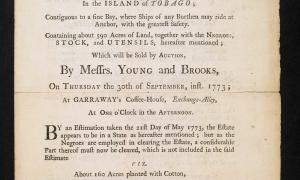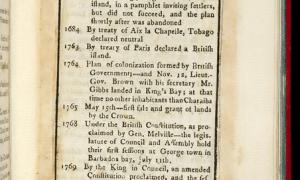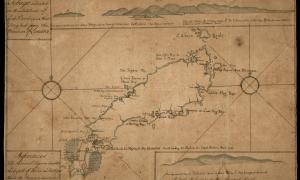
The era of slavery holds a significant place in the history of Tobago. It is a chapter that cannot be ignored when exploring the island's rich cultural heritage.
During this dark period, Tobago, like many other Caribbean islands, experienced the brutal realities of the transatlantic slave trade. The impacts of slavery on Tobago were far-reaching and continue to shape the island's history and identity today. Tobago's strategic location made it a prime target for European powers, who vied for control over the island and its valuable sugar plantations. African slaves were forcibly brought to Tobago to work on these plantations, enduring unimaginable hardships and cruelty.
The labor of enslaved people played a crucial role in the island's economic growth, but the human cost cannot be overlooked. The era of slavery left an indelible mark on Tobago, both physically and culturally.
Visitors to the island can still find remnants of this period, such as old sugar estates, plantation houses, and slave quarters. These sites serve as powerful reminders of the past and provide a glimpse into the daily lives of those who suffered under the oppressive system.
Beyond the physical remnants, the legacy of slavery is deeply woven into the fabric of Tobago's culture. From traditional music and dance forms to religious practices and oral traditions, the influences of African heritage can be seen and felt throughout the island.
Tobago's rich cultural heritage is a testament to the resilience, strength, and creativity of the enslaved Africans who made their mark on the island. Exploring the era of slavery in Tobago is not just an opportunity to learn about the past but also a chance to honor the memory of those who endured unimaginable hardships.
It allows us to reflect on the importance of human rights, equality, and social justice. By understanding the impact of slavery, we can work towards a future that is inclusive, empathetic, and respectful of all individuals.
Tobago's history is a tapestry of stories, and the era of slavery is an essential thread in that narrative. By delving into the untold stories and cultural heritage of this period, we can gain a deeper appreciation for the complexities of the island's past and the strength of its people.




